
 |
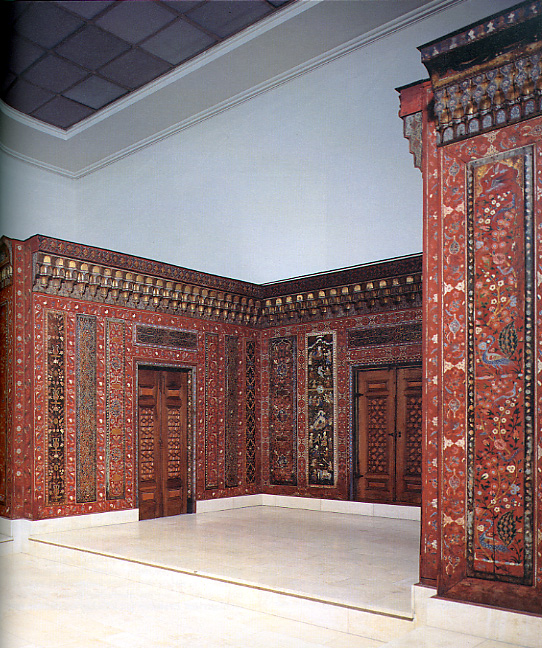 |
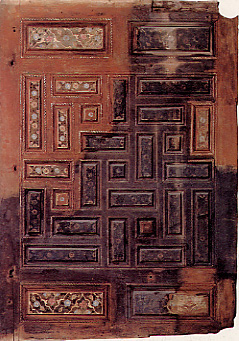 |
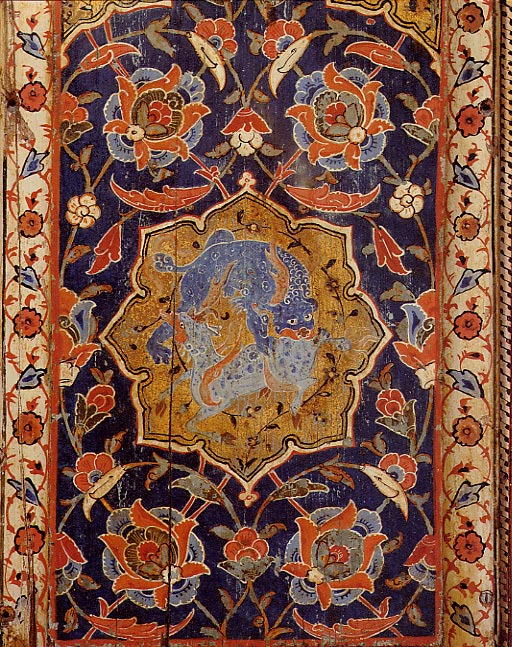 |
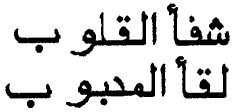
One of the inscriptions of the Aleppo panels. |
Oh You who know my secret, do not uncover me from your protection May You protect from the consequences of Sins; with the wages of your grace pay me Oh You who even know the crawling of the ants in the dark You who took the misery and suffering of Job. Inscription of the Aleppo panels.
|
 |
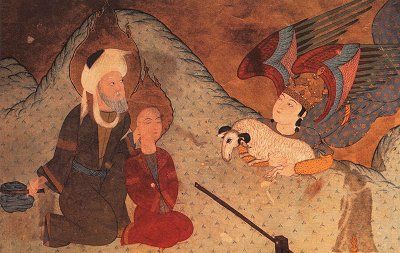
The sacrifice of Isaac from a Turkish manuscript of the 16th century. |
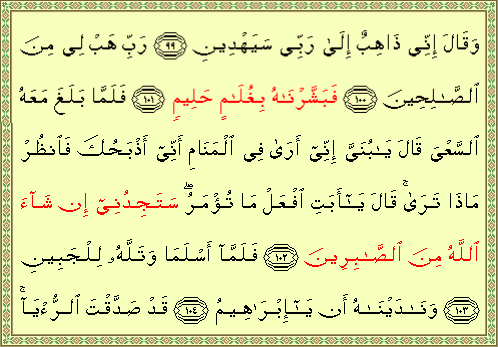 |
99. He said: "I will go to my Lord! He will surely guide me!" |
105. "Thou hast already fulfilled the vision!" -- thus indeed do We reward those who do right. -- Quran, Surah 37 |
[S]peech, in its original essence, is a commitment to a third party on behalf of our neighbor: the act par excellence, the institution of society. The original function of speech consists not in designating an object in order to communicate with the other in a game with no consequences but in assuming toward someone a responsibility on behalf of someone else. . . . The respect for the stranger and the sanctification of the name of the Eternal are strangely equivalent. And all the rest is dead letter. . . . The image of God is better honored in the right given to the stranger than in symbols. Universalism has a greater weight than the particularist letter of the text; or, to be more precise, it bursts the letter apart, for it lay, like an explosive, within the letter. -- Emmanuel Levinas, "Toward the Other" in Nine Talmudic Readings, English translation by Annette Aronowicz |
I grew up in a country, Algeria, that I had to learn to get used to -- you never get used to anything -- get used to all the places, in particular divine places, places of worship, because of the colonial history, and after the colonial, recent, all the places of worship were in some sense appropriated, ex-propriated, re-appropriated, disused, re-used. For example, the big synagogue my father took me and my brother for the big holidays was a former mosque that became a synagogue and kept all the physical characteristics of a mosque, and I know that it became again after decolonization, independence, a mosque. A place of passage, provisional temporality, meaning disused, defunct, with a taste of precarious ruins, as if to say, it's not so bad for a divine place, as if loaned in a certain way, as if God said, this is my land, and these places are loaned to you, the synagoges, the mosques, the churches. By turns with violence, naturally, the expropriation, you can imagine -- by turns is loaned and is retaken, and by consequence lets itself become haunted by the memory of another religion which is practiced in the same place, and remains impassive, as place, these places which have seen, it's understood, so many prayers in so many languages, always to God, one, unique. It so happens that I find myself -- and I'm not the only one -- in the situation of an emigre or immigrant, one of the boat people, invisible or an illegal immigrant, the situation that's not even a situation, a non-place, the site which is without place, crossing, and not without love, places like this. -- Jacques Derrida in the film "D'ailleurs, Derrida," directed by Safaa Fathy |
 |